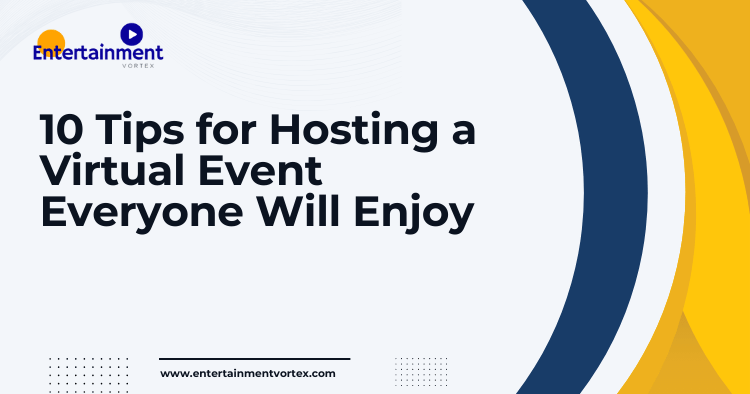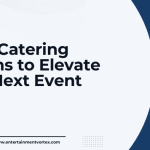Table of Contents
- Understand Your Audience
- Choose the Right Platform
- Create a Compelling Agenda
- Engage with Interactive Elements
- Promote Your Event Effectively
- Utilize Quality Technology
- Prepare for the Unexpected
- Follow Up After the Event
- Gather Feedback for Improvement
- Celebrate Your Success
Understand Your Audience
Before you even think about planning your virtual event, it’s essential to understand who your audience is. This will guide every decision you make, from the content to the platform. Conduct surveys or polls to gauge their interests, preferences, and pain points. Use tools like SurveyMonkey or Google Forms to collect data, ensuring that you tailor the event to meet their needs.
“Knowing your audience is the first step to creating an unforgettable experience.”
FAQs
- How do I find out my audience’s preferences?
- Use surveys, social media polls, or even direct conversations to gather insights.
- What if my audience is diverse?
- Consider segmenting your audience into groups and tailor different sessions to meet various interests.
Choose the Right Platform
Selecting the right platform is crucial for a successful virtual event. Popular platforms like Zoom, Microsoft Teams, and Webex cater to different needs. If you want to host a webinar, GoToWebinar or WebinarJam are excellent options. Make sure to consider the following:
| Criteria | Zoom | Microsoft Teams | GoToWebinar | Webex |
|---|---|---|---|---|
| User Limit | Up to 1,000 | Up to 10,000 | Up to 1,000 | Up to 100,000 |
| Recording | Yes | Yes | Yes | Yes |
| Interactive Tools | Polling, Breakout Rooms | Polls, Chats | Polls, Q&A | Polls, Reactions |
| Price | Free & Paid Options | Included in O365 | Paid Only | Free & Paid Options |
“The right platform can elevate your event from ordinary to extraordinary.”
FAQs
- How can I test the platform?
- Schedule a dry run with your team to familiarize yourself with its features and troubleshoot any issues.
Create a Compelling Agenda
An engaging agenda is the backbone of any successful event. Ensure you have a variety of sessions, including keynote speakers, panels, and Q&A segments. Here’s how to structure your agenda:
- Opening Remarks
- Keynote Speaker
- Panel Discussion
- Breakout Sessions
- Networking Time
- Closing Remarks
Make sure to allocate specific time slots for each segment and inform your audience ahead of time.
“A well-structured agenda sets the tone for a smooth and enjoyable event.”
FAQs
- How long should my event be?
- Keep it concise; ideally, aim for 60-90 minutes to maintain attention.
Engage with Interactive Elements
To keep your audience engaged, incorporate interactive elements such as polls, quizzes, and breakout rooms. Tools like Slido or Kahoot can enhance interactivity. Encourage questions throughout the event to foster participation.
“Engagement is the secret sauce to a memorable virtual event.”
FAQs
- What types of interactive content work best?
- Polls, live Q&As, and interactive quizzes tend to engage participants effectively.
Promote Your Event Effectively
Effective promotion is key to driving attendance. Use social media, email marketing, and even partnerships with influencers to spread the word. Create an appealing registration page that outlines what attendees can expect.
“Promotion is your event’s best friend—don’t underestimate its power!”
FAQs
- How far in advance should I promote my event?
- Aim for at least 4-6 weeks of promotion to build momentum.
Utilize Quality Technology
The technology you use can make or break your event. Invest in quality microphones and cameras if you’re broadcasting live. Also, ensure you have a stable internet connection. If you’re using third-party tools for polls or Q&A, test them beforehand.
“Quality tech can turn a good event into a great one!”
FAQs
- What equipment do I need for a virtual event?
- A good microphone, webcam, and a reliable internet connection are essential.
Prepare for the Unexpected
Even the best-laid plans can go awry. Have a backup plan for technical issues, such as alternative platforms or a designated tech support person. Communicate clearly with your audience in case something goes wrong.
“Preparation is the key to handling the unexpected with grace.”
FAQs
- What should I do if the platform crashes?
- Have a backup platform ready and communicate with your attendees via email or social media.
Follow Up After the Event
Don’t let the momentum die after your event. Send a thank-you email to all attendees, including a summary of the key takeaways and links to recorded sessions. This not only fosters goodwill but also keeps your audience engaged for future events.
“Following up is just as important as the event itself; it keeps the connection alive.”
FAQs
- What should I include in the follow-up email?
- Include a thank-you note, event highlights, feedback links, and information about future events.
Gather Feedback for Improvement
Feedback is essential for refining your future virtual events. Use surveys or direct emails to ask attendees what they liked and what could be improved. This will help you understand your audience better and enhance their experience in the future.
“Feedback is a gift—embrace it to grow and improve.”
FAQs
- How do I encourage feedback?
- Offer an incentive, such as a discount on future events, for those who complete the survey.
Celebrate Your Success
Finally, take a moment to celebrate your success! Share the highlights of the event on social media, acknowledge your team’s hard work, and reflect on what you’ve learned. Celebrating your achievements not only boosts morale but also sets a positive tone for your next event.
“Celebrating success creates a culture of appreciation and motivation for the future.”
FAQs
- How can I share the success of my event?
- Post event photos, quotes from participants, and statistics like attendance numbers on your social media channels.
By following these ten tips, you’re well on your way to hosting a virtual event that everyone will enjoy. Remember, the key is to engage, entertain, and educate your audience. Happy hosting!
Also, look for additional resources to enhance your event planning skills, such as 10 Easy DIY Projects for Beginners to Spark Creativity and Top 10 Online Communities for Hobby Enthusiasts 2024.






